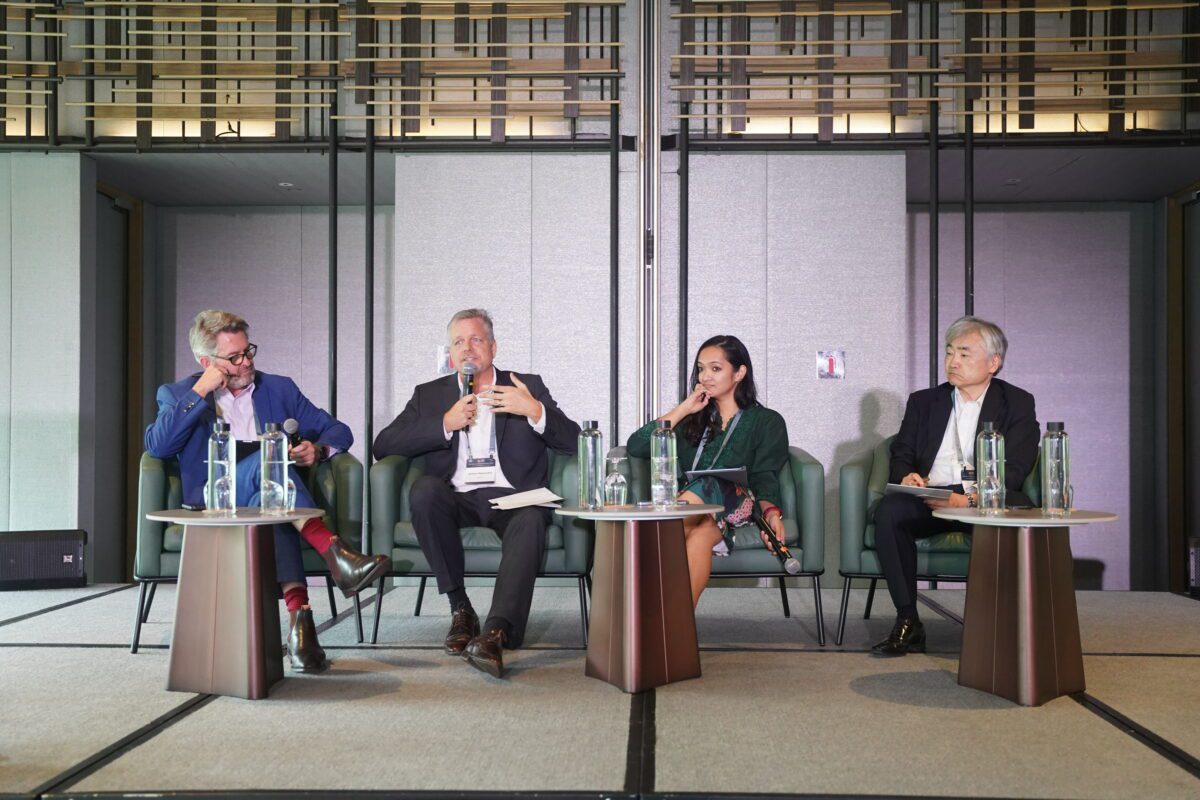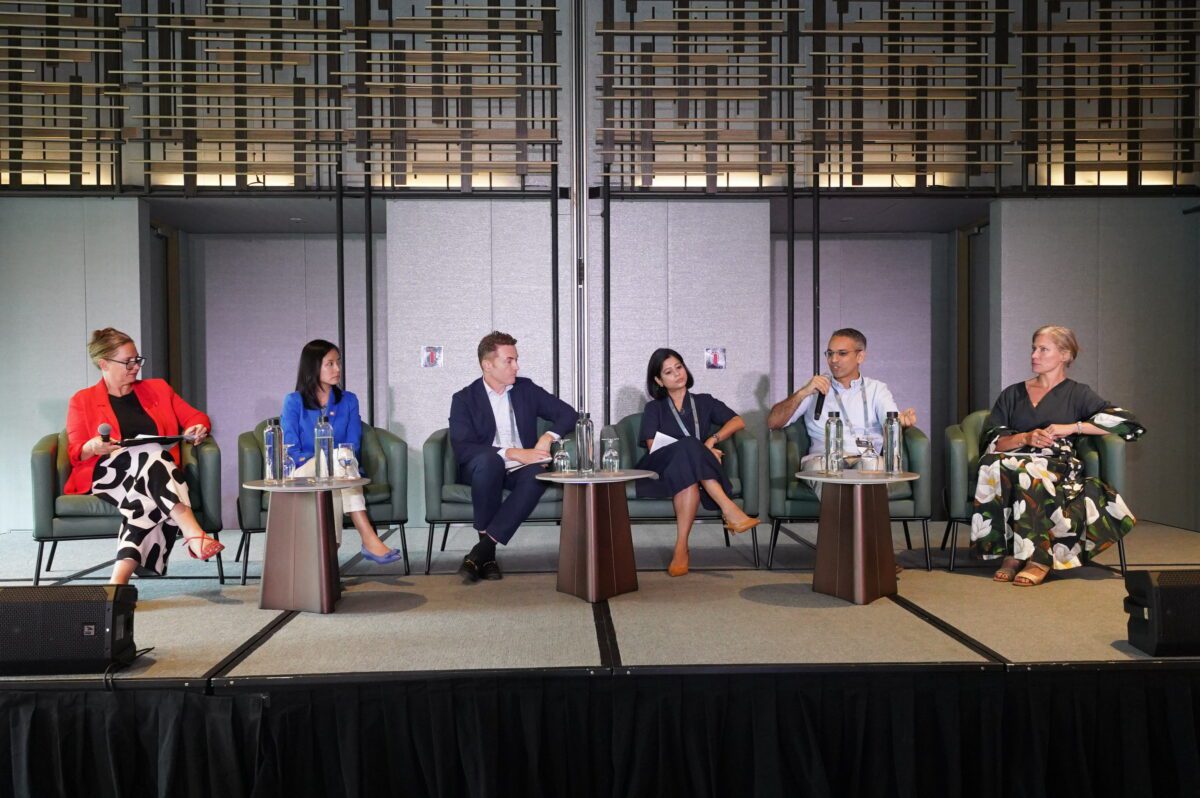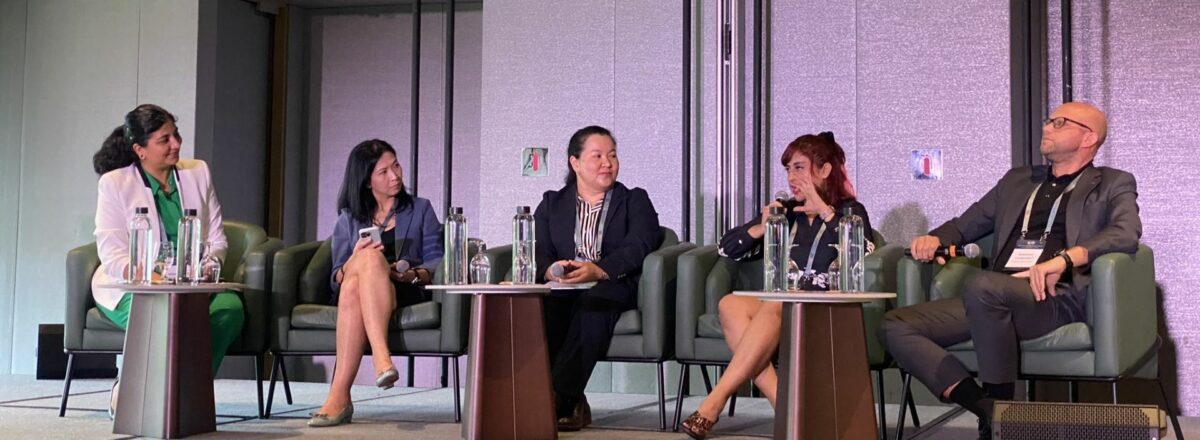Day Two of the Carbon Market Institute’s Singapore Carbon Market & Investor Forum has opened with a strong message from the International Finance Corporation that blended finance solutions are a critical tool in scaling climate finance across the Asia Pacific region. Delivering the Investor Keynote, Country Manager for Singapore, Malaysia and Brunei Darrussalem at the IFC, Katia Daude Goncalves commented on the role of bilateral finance partnerships in supporting critical energy transition across the Asia Pacific region:
“It’s not just more energy that’s needed, but thinking about how we reduce the carbon intensity of the energy that is needed. 85% of this region’s energy needs today comes from fossil fuels. Beyond that, people in this region are very vulnerable to climate change. 1.65 billion people have already been impacted by climate change impacts. 14% of the Asian region’s GDP is at risk from climate change – that’s about 4 times the global average.”
Ms. Daude Goncalves further reiterated the common theme of private investment in solutions at scale, noting that “Partnerships with the private sector will be crucial to scale these investments. However, private investors looking at these emerging markets perceive a lot of risk.”
Separately, Co-Founder & CEO of US-based finance platform Laconic, Andrew J. Gilmour remarked on the importance of strong digital architecture in supporting the transition of carbon credits into identifiable financial instruments. Mr. Gilmour commented that “Each quantum of carbon, or each quantum of data that represents the carbon… is not in and of itself a quantifiable financial instrument. Unless structured as a financial instrument, it cannot be traded as a commodity.”
Flowing from the opening keynotes, a high-profile plenary session provided macro analysis on how private sector organisations can and are scaling their investments in high impact green finance. Speaking on the Australian Securities Exchange’s recently launched environmental futures contracts, Head of Commodities at ASX Daniel Sinclair built on Mr. Gilmour’s speech to paint a compelling case for environmental derivatives and futures contracts.
“The market needs to be able to see what the value of these assets is, not just in the spot but in the forward because that’s the critical information that feeds into investment” Mr. Sinclair said.
Blackrock’s Head of Sustainable & Transition Solutions, Southeast Asia, Heidi Yip noted the pressure of growing government regulation in backing private sector investment decisions: “There is pressure for stricter capital management on the company side, and for boards and management to make longer term decisions today about longer term capital decisions that may or may not pay off, but are essential for the future.”
Commenting on the relatively volatile past couple of years in the voluntary carbon market space, Regional Representative, East & Southeast Asia for Verra, Win Sim Tam noted that the market is slowly gaining the tools needed to support the establishment of robust projects. Mr. Tam said “there are other instruments being pushed by multilateral finance agencies supporting what we call pre-project finance. Pre-project finance is a significant barrier to projects in the region, because without core-project finance you can’t establish a project.”
Following a morning focused on the technical framework elements of the flows of private finance required, a second expert plenary further explored the role of digital platforms in supporting carbon market growth. Sylvera’s APAC Commercial Lead, Louis Booth noted increasing use of the platform since the recent turbulence of the carbon market.
“When we started 5 years ago, there was plenty of expertise on carbon markets, plenty of people could give you a view on the project level quality. Where the information was lacking was in the systematic information on their projects that would clearly demonstrate a project’s quality, with replicable data.”
“We’re finding that the big financiers and investors are wanting more and more, that replicability of data that we have,” said Mr. Booth.
Indeed, rather than abandoning the carbon market altogether, it is clear that private companies and governments alike are continuing to support high quality projects through the use of digital data which verifies the impact of these projects. Executive Director of the Singapore Government-backed Climate Action Data Trust Dinesh Babu spoke of the CAD Trust’s work to develop a single unique identifier for carbon credits, and the early impact of this.
“The data identifier shouldn’t become too complicated. It has to be a universal means that everyone should follow, or at least the majority of the market should follow. When CAD Trust started using the unique identifier for VERs, the majority of the voluntary market began to follow” Mr. Babu said.
As companies and governments ahead look towards COP29 and the establishment of the new collective quantified goal on finance, it is evident that there are already strong foundations in place to support and impactful scaling up of high impact, blended finance.
About the Forum
The Singapore Carbon Market & Investor Forum is the Asia Pacific Region’s premier decarbonisation and market-solutions focused event. In its inaugural year, the Forum brought together over 300 senior delegates, with a mix of government and private sector representatives present. The Forum brings together actors from across the broader Asia Pacific Region, with an emphasis on knowledge sharing for capacity building. The high profile of speakers and delegates continues to attest to the importance of fostering international linkages to support a net zero trajectory.
The full event program is accessible here.
About the Carbon Market Institute
CMI is an independent member-based institute that promotes best practice in market-based solutions and decarbonisation investment to help limit warming to 1.5ºC. CMI’s around 150 strong membership includes organisations from across the economy, in Australia and the Asia Pacific region. CMI also administers the Australian Carbon Industry Code of Conduct, which was established in 2018 to promote and steward consumer protection and market integrity. The CMI Board updates CMI’s Policy Positions annually, which draw on practical insights from—but are ultimately independent of—members.



